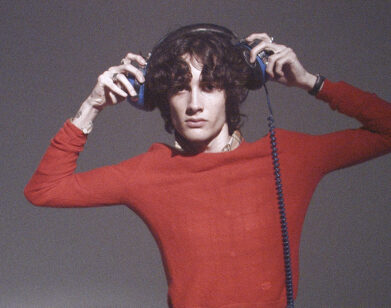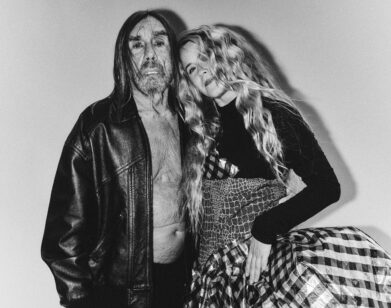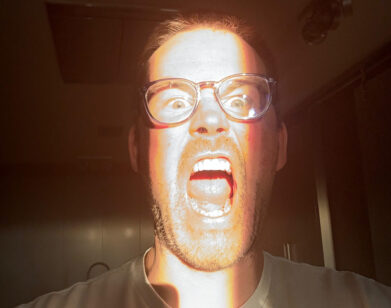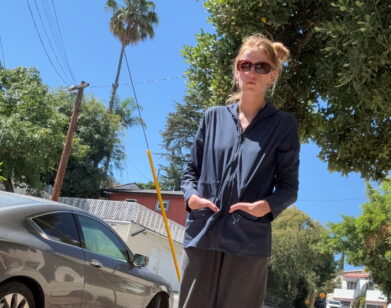Ra Ra Riot: Life is Peachy
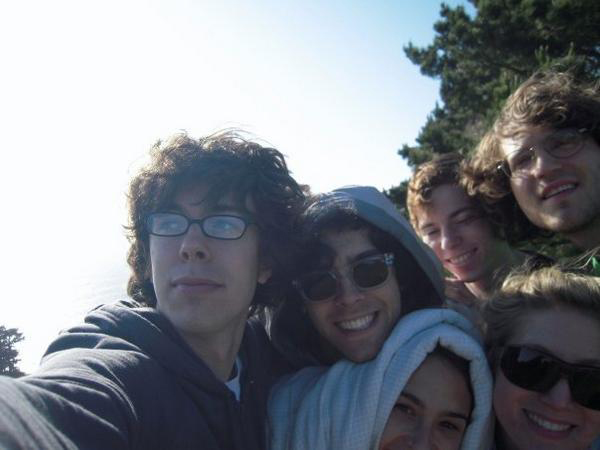
Ra Ra Riot formed on a college campus, the Syracuse University, and emerged onto the musical landscape in 2008 with a collection of literate, energetic pop songs at about the same time as their compatriots, Vampire Weekend. And while these Orangemen took a more sensitive and dramatic approach, with swooning, string-heavy numbers like “Dying is Fine” and “Can You Tell,” their work is no less catchy. Despite enduring a horrific early blow in the sudden death of its original drummer, the band soldiered on to release its debut album The Rhumb Line in August 2008. And, while they may have not yet experienced a catch-fire “moment,” band and album enjoyed a slow burn. And thanks to a ton of touring, the steady growth of a devoted fan base. Anticipation was therefore high for the recent release of Ra Ra Riot’s second full-length The Orchard (Barsuk), so named for the place where much of the record was written—a peach orchard in upstate New York. I recently sat down in Brooklyn to talk about that and more with RRR’s vocalist Wes Miles and violinist Rebecca Zeller.
JOHN NORRIS: Well guys, a lot of people have been waiting a while for this record. Would you like to have seen the album come out a bit sooner than it has?
REBECCA ZELLER: Sort of, but only because the record’s been done for a while and we’ve sort of been sitting with it. So, it sort of would have been nice to have all the anxiety not have as much time to build before its release. But I also think it’s kind of appropriate that it was released almost two years to the day after The Rhumb Line.
NORRIS: And unlike The Rhumb Line, where a lot of people had already heard those songs by the time the album came out, this time most of these songs are just now being heard.
ZELLER: Yeah, we intentionally held most of them back. We didn’t want to have too many songs out there for people to hear before the release of the album, like [what happened] last time. So for most of the past year in our shows we only played maybe three and then in the past month or two we let some slide just because we were so excited that we wanted to play some new songs.
NORRIS: So it was about a year ago that you went up to this peach orchard to really craft the songs for the album?
MILES: Yeah, up in Penn Yan, New York, in the Finger Lakes region.
NORRIS: Still representing for Upstate even though you guys live mostly down here now?
ZELLER: Well, the band’s roots are Upstate.
NORRIS: You still bleed Syracuse Orange?
MILES: That’s right.
NORRIS: So how did you end up on the orchard? Was it important to be in an isolated place?
ZELLER: Milo, our guitar player, his really good family friends used to live on the farm but they moved up like ten miles away. So while they were trying to sell this house they let us live there and take care of it and play and write all of the music. And it’s a beautiful place—not only is it on a peach orchard, it’s also in a Mennonite community.
MILES: We get a lot of work done when we’re more secluded. And for the first record, most of the music was written in Syracuse when we started playing house parties. I think environment has a lot to do with the music that we write but being on this orchard did kind of change the way that we went about it and I think the style that came out too. So we weren’t kind of dominated by the thought of trying to grab people’s attention at house parties immediately and making sure we were really loud all the time for people who wanted to dance. That’s why some of the quieter stuff came out.
NORRIS: So when some of the reviews have called The Orchard a “softer” record, you’re OK with that?
ZELLER: When I hear that I interpret it as people saying it’s not maybe as youthful. Because like Wes is saying, earlier we were making music for house parties, and now there was no goal like that. I think maybe we’ve just all matured a bit.
NORRIS: That said, this Euro-poppy new track “Too Dramatic” is plenty youthful, and your single “Boy” is as upbeat and driving a song as you guys have released. How did that come about?
MILES: That was actually something I recorded as a demo that I recorded with a little Casio keyboard probably like a year and a half ago. I did it on Milo’s computer and I had saved it as “Top Secret Jam” and hid it somewhere in his computer, and totally forgot about it. Then when we were about to go to the orchard last summer, like July-August, and he just found this demo, and I was like, “What is this song that I totally forgot about doing?”
ZELLER: And we all loved it, it was like ,”Top Secret Jam?” That’s awesome! I’m glad we found it. And it became “Boy.”
NORRIS: Another song, “Massachusetts” is a bit spikier and has led a few people to compare it to Vampire Weekend.
ZELLER: That was to be expected.
NORRIS: A comparison that has followed you guys for some time now. But I know you are friends with Vampire Weekend, and you’ve toured with them. Any thoughts on their explosion, and what do you think when people talk about Ra Ra Riot are due–that you guys are ready to “take it to the next level”?
MILES: All that is a bit nerve-wracking to hear.
ZELLER: As for why that happens, I think it’s a combination of timing and talent and luck and right place, right time. There’s no formula for that. I think Vampire Weekend are really talented.
MILES: Yeah, not only are they friends but they’re also all musicians that we look up to and respect a lot.
NORRIS: And in fact Rostam [Batmanglij] mixed one of the songs on The Orchard.
MILES: Yeah he mixed and co-wrote “Do You Remember?” That came about toward the end of us working on Discovery together.
NORRIS: Which, for those who don’t know, Discovery was one of the great surprise gems of last year, an amazing electro pop record. Are there plans for you guys to do another?
MILES: No specific plans. He’s really busy, and I am as well, but there’s always tentative plans to do something. So we’ll see.
NORRIS: One of the reasons I feel like there’s less pressure or maybe less of a microscope on you guys with this second album is that there was never a moment when Ra Ra Riot blew up. It’s just been a nice and steady upward trajectory for you guys.
ZELLER: At the time, you have mixed emotions because there are some bands who you do see their trajectory just take off. Obviously ours was much slower, but I think as time goes on you realize maybe the fastest way is not always the best way. But we’ve worked hard and toured a lot and we’ve earned our fans and so I think it’s harder to fall when it’s been a slower build.
MILES: I feel like every bit of elbow grease we have put in our career has had a steady return, so it’s nice to feel like your work pays off.
See John Norris’s video interview with Ra Ra Riot at Noisevox.

